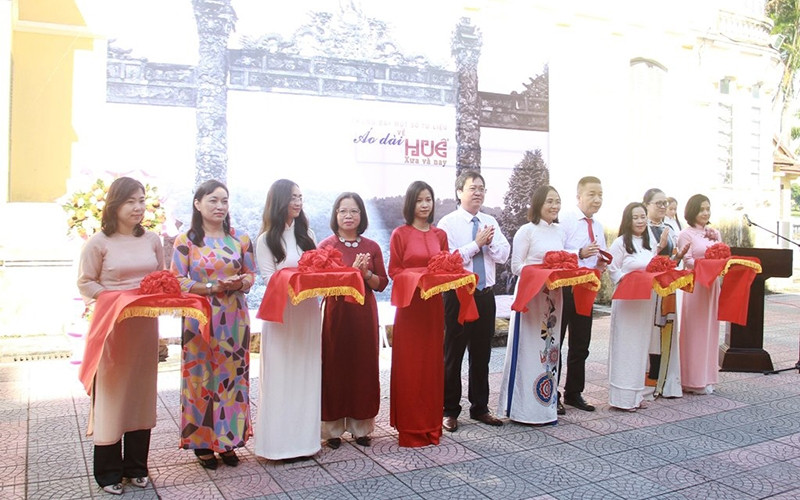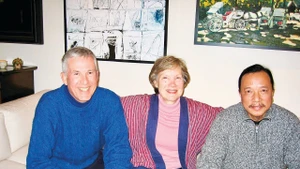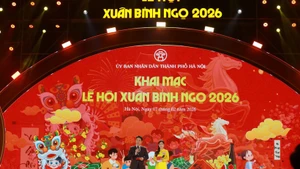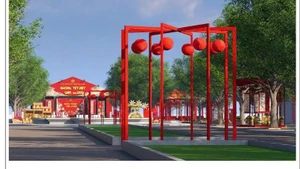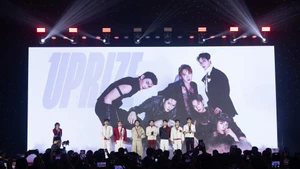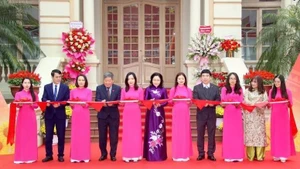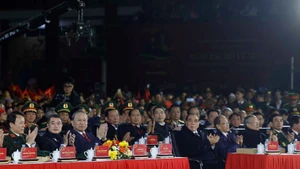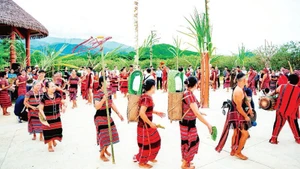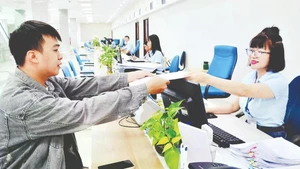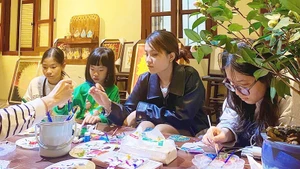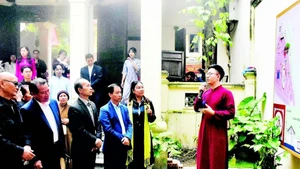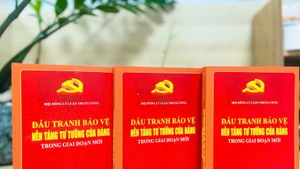As part of the activities within the framework of the four-season Hue Festival in Thua Thien – Hue in 2022, the event contributes additional materials towards building the "Hue - Capital of Ao Dai in Vietnam" brand.
The gallery introduces visitors to precious documents, especially on the diverse range of Ao Dai models, showing the process of forming Hue Ao Dai through the periods.
Hue Ao Dai follow the general flow of the history of the development of the Vietnamese Ao Dai. However, due to the effects of history, nature and cultural exchanges, Hue Ao Dai have developed their own unique features and nuances.
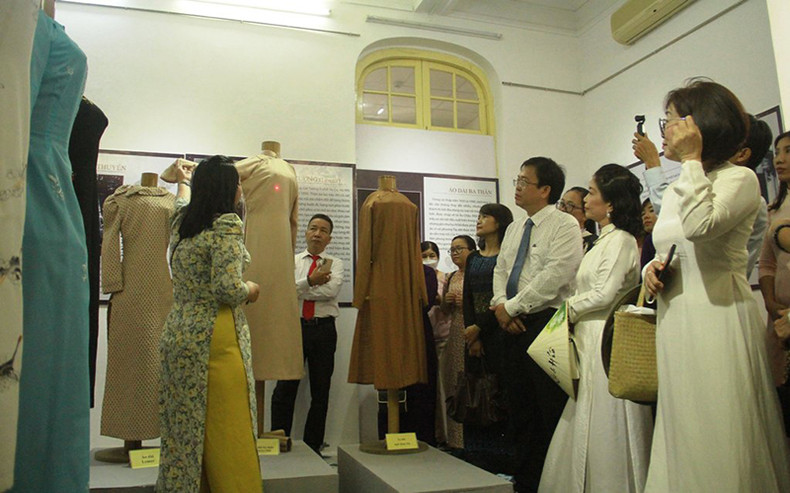
The ancient and modern Hue Ao Dai.
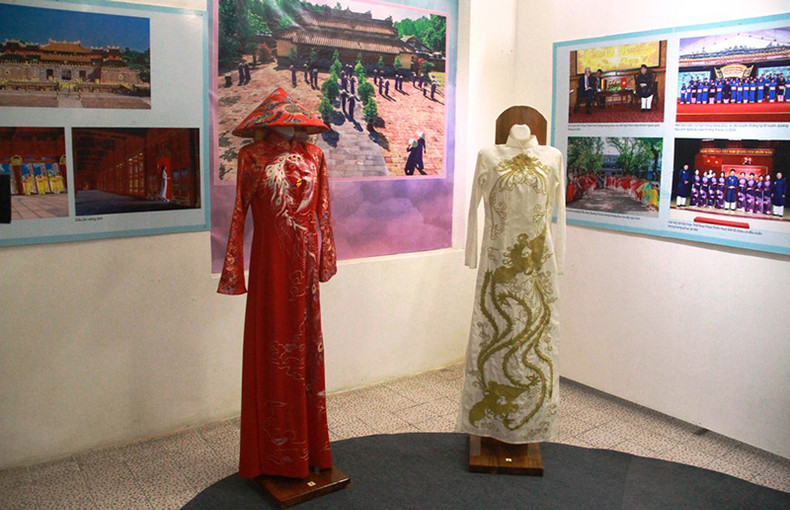
Hue ao dai designs in the past and present.
Sharing at the opening ceremony, Director of Hue City Centre for Culture, Information and Sports, Tran Viet Hung said: “In the current context, honouring and promoting the values of Ao Dai, making Hue Ao Dai become a symbol of Hue women's and men's costumes, and honouring the beauty of traditional culture and the charm and elegance of the people of the ancient capital are the effort of the leaders of the Hue's government and the people. The thematic gallery "Some documents on Hue Ao Dai in the past and present" wishes to contribute more documents to affirm the value and honour the beauty of Hue Ao Dai.
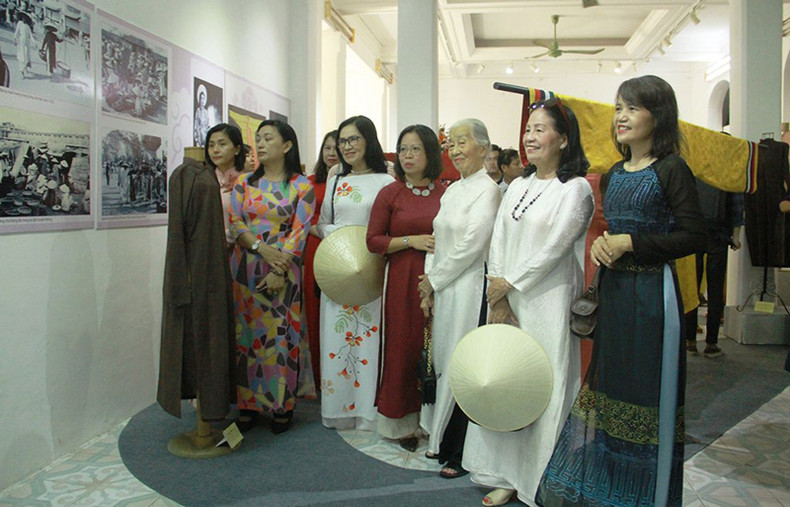
The exhibition attracts many female groups, including the Hue Ao Dai Club, to visit and enjoy the event.
Taking place from June 17 to July 17, the gallery is introducing more than 40 sets of Hue Ao Dai from the past and present, mainly from the 50s, 60s, and 70s, donated by Tran Thi Dieu Thuong and Tran Thi Chau.
